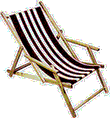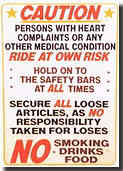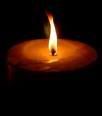Thursday, March 12, 2009
The last newspaper
My older brother Jim had an afternoon paper route. He delivered 80 or more newspapers, six days, earned less than the morning routes but didn't have to collect or get up at 5 am. His territory was the west end of town. There were a lot of territories. Every delivery day he rode his bike with the enormous handlebar basket to the distributor's garage, folded his papers with the other paper boys , stuffed them in the basket, & pedaled his route. Occasionally, he let me ride along & help - maybe I saved him ten minutes if that; in exchange he'd take me to the 5 & 10 & buy me a 45 record. He'd also buy one for himself. Every town had paperboys riding bikes morning & afternoon, & a few older people delivering by car.
My dad subscribed to two papers, Newark Evening News & Elizabeth Daily Journal, both long defunct. All the other major papers (except NY Daily News) were at the public library up the corner, I passed it every day as I walked to & from school. Because newspapers were so popular, newspaper collection drives were major fund-raising events. All papers were saved, bundled & tied (a tedious chore), & stacked out of the way in anticipation of the Boys Scouts drive. The drive was a big volunteer day, widely promoted & tightly organized. Dads with station wagons or, better yet, pickup trucks, were sought after. A trailer was rented & parked at the central collection point. Bundled papers were put on the curb. The elderly received special "in house" service.
Newspapers were in decline long before the internet. 35 years ago, careers in newspaper work, in the newsroom, offices, & plants, were considered iffy, very much a gamble, because the industry was shrinking overall, & technology was eliminating many of the skilled, union positions. The use of stringers was increasing; part-time pieceworkers covering local government meetings & high school sports. I did some stringer reporting & knew I was no more than an amateur dabbler, at best the writer equivalent of a paperboy, & paperboys were more important. For me, columnists were the stars. Younger general interest columnists were rare & worth envying. Pete Hamill was a popular model for this writing, if one wasn't seduced by the gonzo style of Hunter S. Thompson.
I was able to write a regular local newspaper column only by doing it for free, & with that pay there was no way I would stick my neck out very far over local political issues. I didn't need enemies. I also saw no reason to develop a consistant style, so I bought a couple of anthologies surveying American newspaper column writing dating back to the colonial era & let those inspire many of my pieces. After all, one of the most famous columnists of all time was a cockroach named archy who wrote his columns in lower case free verse poetry by diving headfirst on to a typewriter, approximately the same method I have for poems. The only battle I had with an editor concerned my use of the ampersand (I lost). Other than that, the young editors at the weekly chain were so glad to have my oddball 400 word space-fillers that they wouldn't even correct my punctuation, assuming it was deliberate & they would offend me by applying standard rules. Many "personal" bloggers write like local newspaper columnists from back when thousands of small cities had a daily or a popular weekly (Anyone remember Erma Bombeck? Every paper that ran her column had its own homegrown humorous homemaker).
An article in the New York Times got me thinking about this: As Cities Go From Two Papers to One, Talk of Zero. Over the next year, possibly over the next few months, some major American city will become the first with no major daily newspaper. Why? Sadly, it might not be because the last newspaper is unprofitable, but because the parent corporation greedily gobbled up newspapers, incurring huge debt loads it cannot pay off. The media empires are toppling themselves when leaner, independent newspapers are finding ways to keep going. There's still a demand for dailies, but newspapers need the flexibility to adjust to the market. They won't be what they were, but they'll still provide important coverage of local news, politics, & sports, conceding geography where they compete with newspapers better positioned to cover those areas. A website will be a crucial part of the operation. I read the New York Times online much more than I ever did the print version. Yes, I feel like I'm cheating.
"If a nation expects to be ignorant and free, in a state of civilization, it expects what never was and never will be." Thomas Jefferson
My dad subscribed to two papers, Newark Evening News & Elizabeth Daily Journal, both long defunct. All the other major papers (except NY Daily News) were at the public library up the corner, I passed it every day as I walked to & from school. Because newspapers were so popular, newspaper collection drives were major fund-raising events. All papers were saved, bundled & tied (a tedious chore), & stacked out of the way in anticipation of the Boys Scouts drive. The drive was a big volunteer day, widely promoted & tightly organized. Dads with station wagons or, better yet, pickup trucks, were sought after. A trailer was rented & parked at the central collection point. Bundled papers were put on the curb. The elderly received special "in house" service.
Newspapers were in decline long before the internet. 35 years ago, careers in newspaper work, in the newsroom, offices, & plants, were considered iffy, very much a gamble, because the industry was shrinking overall, & technology was eliminating many of the skilled, union positions. The use of stringers was increasing; part-time pieceworkers covering local government meetings & high school sports. I did some stringer reporting & knew I was no more than an amateur dabbler, at best the writer equivalent of a paperboy, & paperboys were more important. For me, columnists were the stars. Younger general interest columnists were rare & worth envying. Pete Hamill was a popular model for this writing, if one wasn't seduced by the gonzo style of Hunter S. Thompson.
I was able to write a regular local newspaper column only by doing it for free, & with that pay there was no way I would stick my neck out very far over local political issues. I didn't need enemies. I also saw no reason to develop a consistant style, so I bought a couple of anthologies surveying American newspaper column writing dating back to the colonial era & let those inspire many of my pieces. After all, one of the most famous columnists of all time was a cockroach named archy who wrote his columns in lower case free verse poetry by diving headfirst on to a typewriter, approximately the same method I have for poems. The only battle I had with an editor concerned my use of the ampersand (I lost). Other than that, the young editors at the weekly chain were so glad to have my oddball 400 word space-fillers that they wouldn't even correct my punctuation, assuming it was deliberate & they would offend me by applying standard rules. Many "personal" bloggers write like local newspaper columnists from back when thousands of small cities had a daily or a popular weekly (Anyone remember Erma Bombeck? Every paper that ran her column had its own homegrown humorous homemaker).
An article in the New York Times got me thinking about this: As Cities Go From Two Papers to One, Talk of Zero. Over the next year, possibly over the next few months, some major American city will become the first with no major daily newspaper. Why? Sadly, it might not be because the last newspaper is unprofitable, but because the parent corporation greedily gobbled up newspapers, incurring huge debt loads it cannot pay off. The media empires are toppling themselves when leaner, independent newspapers are finding ways to keep going. There's still a demand for dailies, but newspapers need the flexibility to adjust to the market. They won't be what they were, but they'll still provide important coverage of local news, politics, & sports, conceding geography where they compete with newspapers better positioned to cover those areas. A website will be a crucial part of the operation. I read the New York Times online much more than I ever did the print version. Yes, I feel like I'm cheating.
Labels: about writing, growing up, in the news, Newark NJ














